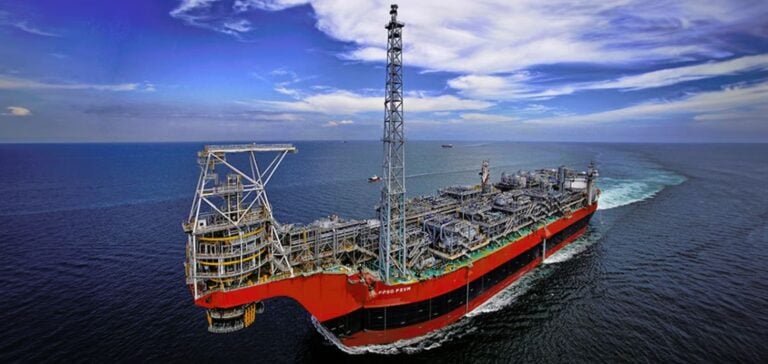Senegal officially joins the ranks of the world’s oil exporters thanks to the Sangomar project, operated by Woodside. The $5.2 billion development is now producing 100,000 barrels per day of medium-sulfur oil. This first export underlines the strategic importance of the project for the country.
The Greek tanker Maran Poseidon, chartered by Shell International Trading, arrived at the export terminal to transport the Senegalese crude. This tanker, with a capacity of 1.06 million barrels, is ready to deliver this first cargo sold to Shell, a significant milestone for Senegal on the global energy scene.
Impact on the energy market
This new inflow of non-OPEC+ crude comes at a critical time. The producers’ alliance is trying to stabilize the market and raise prices in the face of growing production in America and persistent inflation. Sangomar’s oil, with qualities similar to Oman Blend and Johan Sverdrup, is well positioned to attract refineries in China, Poland, the Netherlands and Germany.
Woodside holds an 82% stake in the project, alongside Petrosen with 18%. The crude is loaded from the 1.3 million-barrel FPSO Leopold Sedar Senghor, anchored 100 km off Dakar. The project comprises 24 wells, including 12 production wells, 10 water injectors and two gas injectors.
Infrastructure and Production
The cargo is loaded from the FPSO Leopold Sedar Senghor. The Sangomar project comprises a complex infrastructure with 24 wells, including 12 production wells, 10 water injectors and two gas injectors for the first phase. The total capacity of the development makes it a major player in the sector.
The first oil shipment came after Bassirou Diomaye Faye’s election victory. Although he has announced contract renegotiations, no concrete action has yet been taken. Senegal is also preparing for the start-up of the Greater Tortue Ahmeyim LNG project, operated by BP and expected later this year.
The addition of this new source of crude oil and natural gas to the world market reinforces Senegal’s position as a key player in the energy industry. This opens up significant economic prospects and investment opportunities.






















